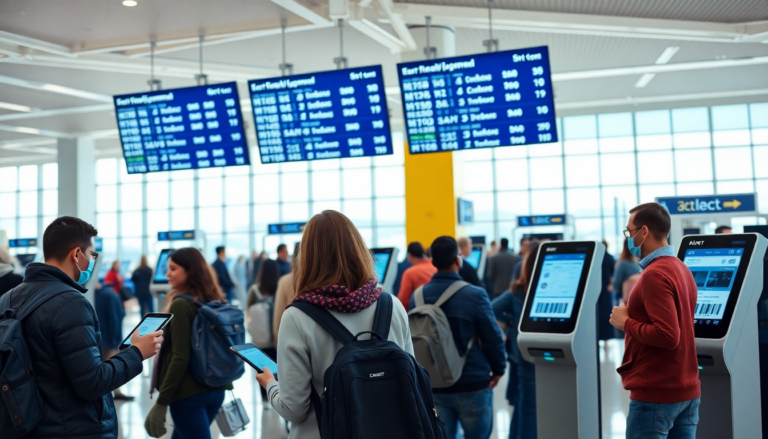Argomenti trattati
The travel industry is experiencing a seismic shift as major tech companies quietly reshape our travel experiences. For years, airlines and airports have held the reins on crucial passenger interactions—think check-in, boarding, and baggage tracking. But increasingly, this control is migrating to tech giants like Apple, which are setting new benchmarks for customer experiences in travel. What does this mean for airlines? They’ll need to adapt to the design thinking and operational frameworks laid out by these powerful platforms.
The Rise of Digital Identity in Travel
One of the most exciting advancements in this sphere is Apple’s recent move that allows U.S. iPhone users to store their passports in Apple Wallet. This TSA-approved digital ID is poised to streamline processes at domestic airport security checkpoints. Isn’t it fascinating how something as simple as a digital passport could modernize travel? By enabling passengers to present their passports digitally, much like they do with boarding passes, Apple is not just simplifying airport procedures; it’s also tackling the complex regulatory landscape surrounding digital identities.
Digital identity has long been viewed as the key to seamless travel, yet its uptake has been sluggish due to hurdles like regulatory compliance and safety concerns. Apple’s initiative could be the breakthrough we’ve all been waiting for, aligning with upcoming Real ID regulations and offering a secure alternative to outdated identification methods. This shift underscores the growing influence of consumer tech companies in shaping travel infrastructure—could Apple become the go-to player for navigating airports and even borders?
Moreover, this trend hints at a future where travel is increasingly paperless and driven by biometrics. Picture a world where your smartphone serves as your passport, boarding pass, and central control hub for all your travel needs. How revolutionary would that be?
Enhancing Passenger Experience with Smart Innovations
Following the announcement of digital passports, Apple unveiled a redesigned boarding pass experience at its developer conference. This update transforms the boarding pass into a centralized travel hub that integrates live flight updates, terminal maps, and baggage tracking—all accessible directly from the iPhone lock screen. Air Canada is among the first airlines to embrace this feature, showing a strong commitment to enhancing passenger experiences through digital innovation.
This revamped Apple Wallet experience not only minimizes the need for passengers to juggle multiple airline apps but also delivers real-time updates and essential travel information. Can you imagine how much easier travel could be with this kind of seamless integration? By cutting out the usual hassles of logins and complex menus, it significantly reduces passenger stress and elevates the overall travel experience.
For airlines like Air Canada, adapting to this shift is crucial for standing out in a crowded market while meeting evolving consumer expectations. As Big Tech embeds itself deeper into the travel industry, airlines must rethink their strategies to stay relevant in this new landscape. What strategies will they adopt to keep pace?
The Future of AI in Airline Customer Engagement
In addition to Apple’s innovations, Iberia Airlines is making waves with the launch of a dedicated AI assistant on OpenAI’s ChatGPT platform. This move represents a pivotal shift in how airlines can engage with travelers, moving beyond traditional customer service channels to leverage cutting-edge AI technology for a more interactive experience.
The Iberia assistant, designed to help users explore destinations, search for flights, and plan multi-city trips, signifies a significant evolution from conventional airline chatbots. By embedding itself in a major consumer AI platform, Iberia is exploring new avenues for customer interaction that could redefine the traveler experience. Are we ready for such a change?
However, the success of this innovation hinges on effective promotion and accessibility. Currently, the assistant is limited to the GPT Store, raising questions about whether Iberia will actively market this feature or use it merely as a testing ground for future AI integrations. Regardless, this development showcases the potential for AI to become the primary interface for travel discovery, possibly overshadowing traditional airline websites.
As Big Tech continues to reshape the travel landscape, airlines face critical decisions about integration and adaptation. The pressing question is no longer whether to embrace these technologies, but rather how swiftly they can pivot to meet the demands of modern travelers.

